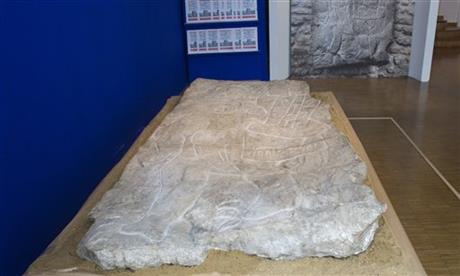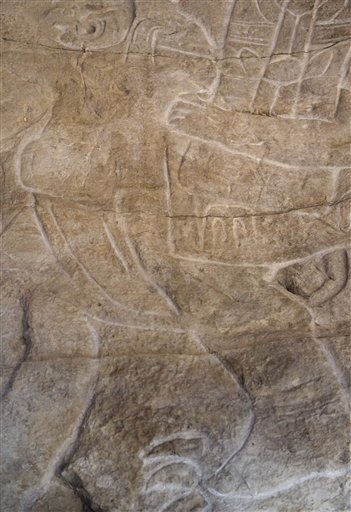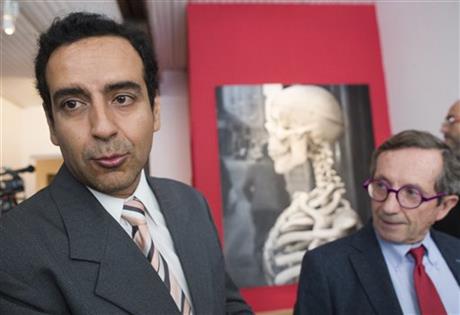
A nearly 3,000-year-old carving stolen more than four decades ago from a remote area of southern Mexico has been recovered in France.
The Olmec carving dating to around 900 B.C. had been chipped off the rock face sometime between the arrival of an archaeological team in 1968 and 1972, when the team returned to the area. It resurfaced recently in France under unclear circumstances.
John Clark, a professor of archaeology at Brigham Young University who learned about the find Thursday, said the carved sculpture showed the extent of the Olmec’s reach in an area of Chiapas better known for ties to the Maya. In the decades since the theft, he said, scholars have made due with a replica created by examining archive photos of the piece.
The Olmec are best known for their enormous carved heads and are considered one of the founding cultures of Mesoamerica.


Dominique Michelet, a French archaeologist at the CNRS research center involved in recovering the piece, said Thursday the bas relief is believed to represent a priest.
Clark said chunks of the cut-out stone were missing, but it appeared largely intact.
“There’s no image like this anywhere else. You can see he’s wearing some sort of mask over his face. His clothes are unlike anything we’ve seen,” Clark said. “There’s just enough clues in some of the clothing detail and the face detail to show it’s Olmec.”
He said scholars first learned about the stone carving from Germans traveling through the region in the early 20th century. Then the archaeological team arrived in 1968 to document it and search the area for more artifacts. The next time they returned, there was a gash in the rock face.
“It’s a real problem in the Maya lowlands. A lot of them show up in the art market mostly in Europe. I’m surprised it was given back,” Clark said.
Mexico’s National Institute of Anthropology and History said in a statement the carving was “secretly extracted from the rock face in the early 1970s and illegally taken out of the country.”
Michelet wouldn’t say how it was found.
It will be returned to Mexico for restoration and public display.



